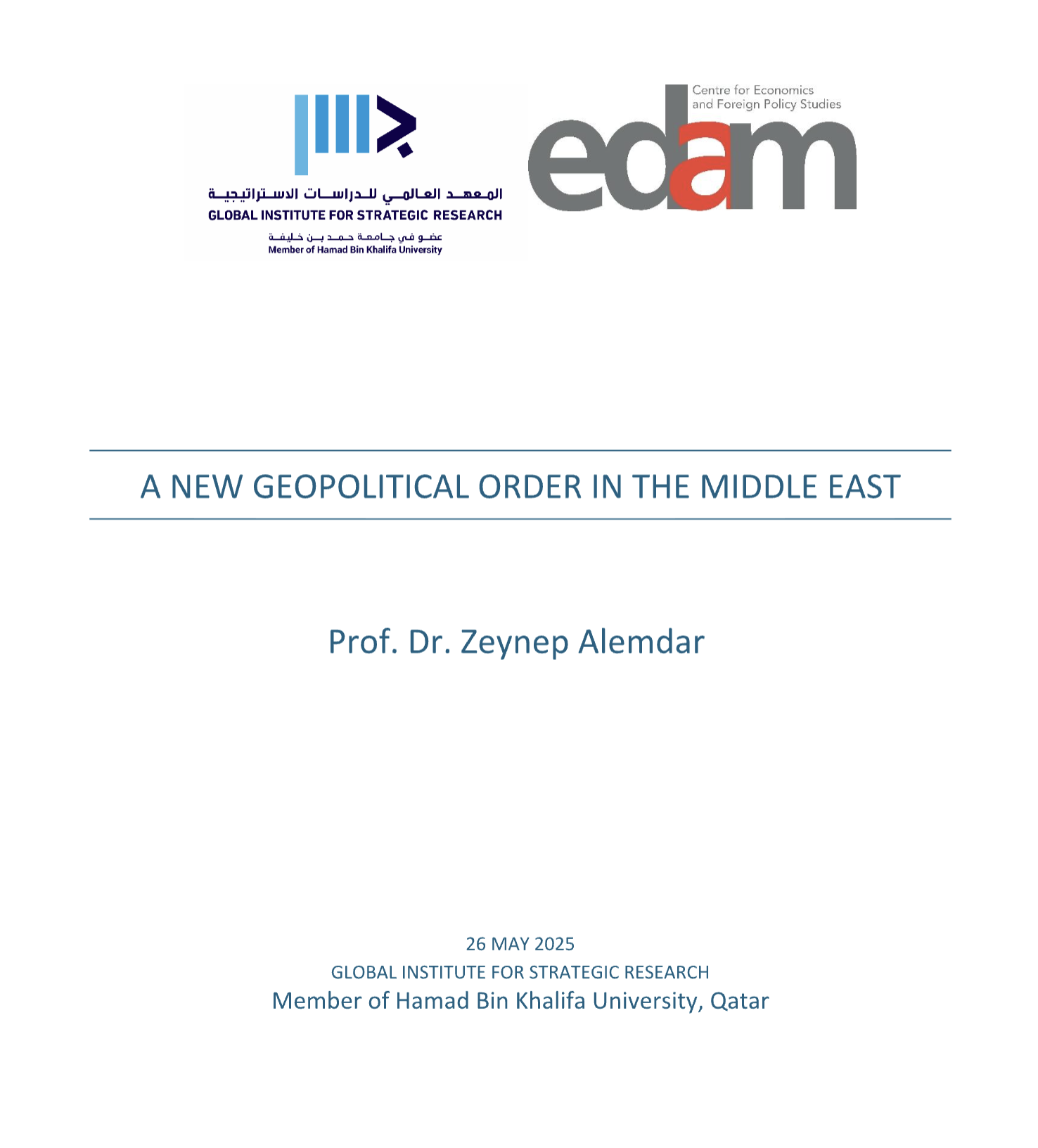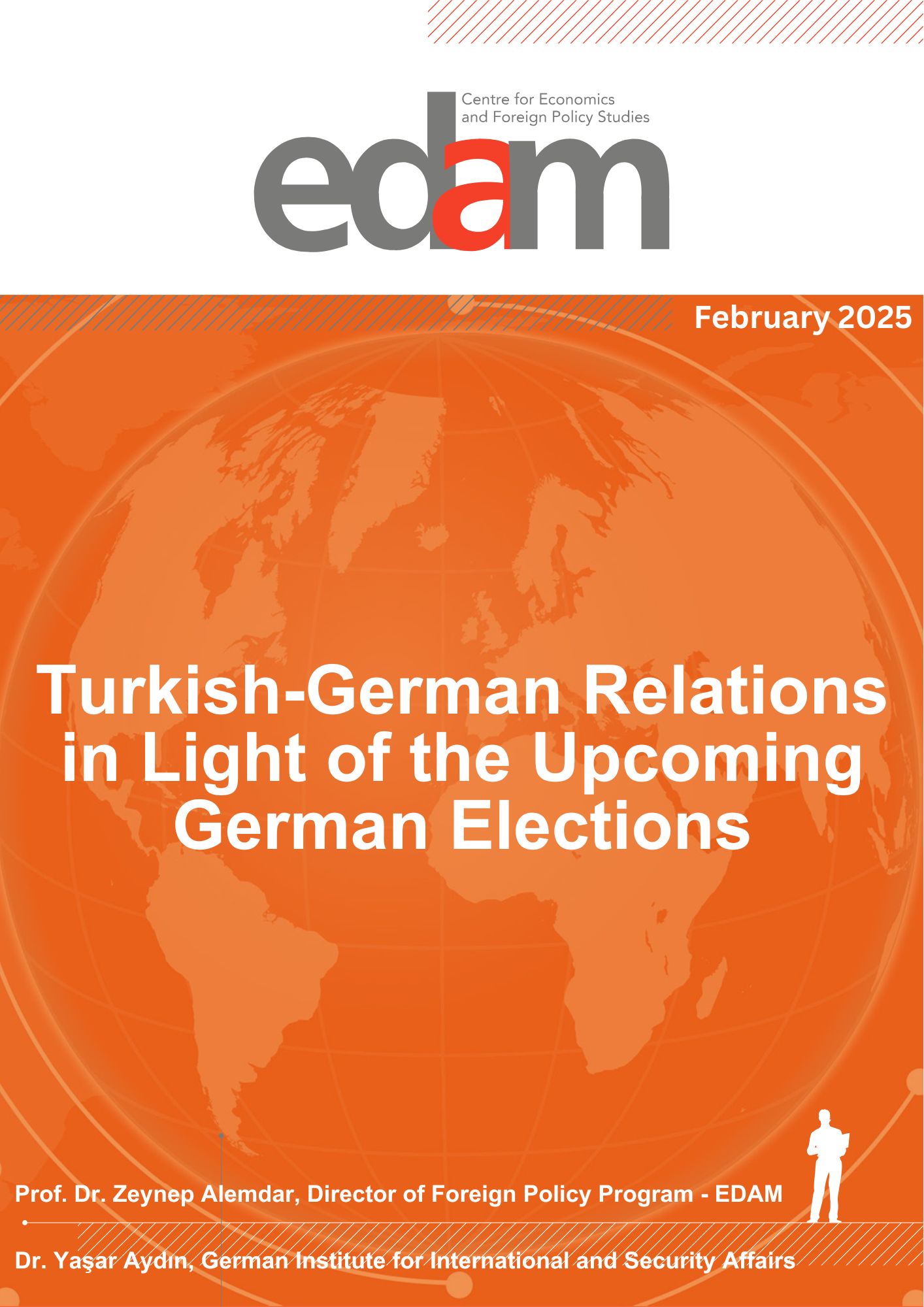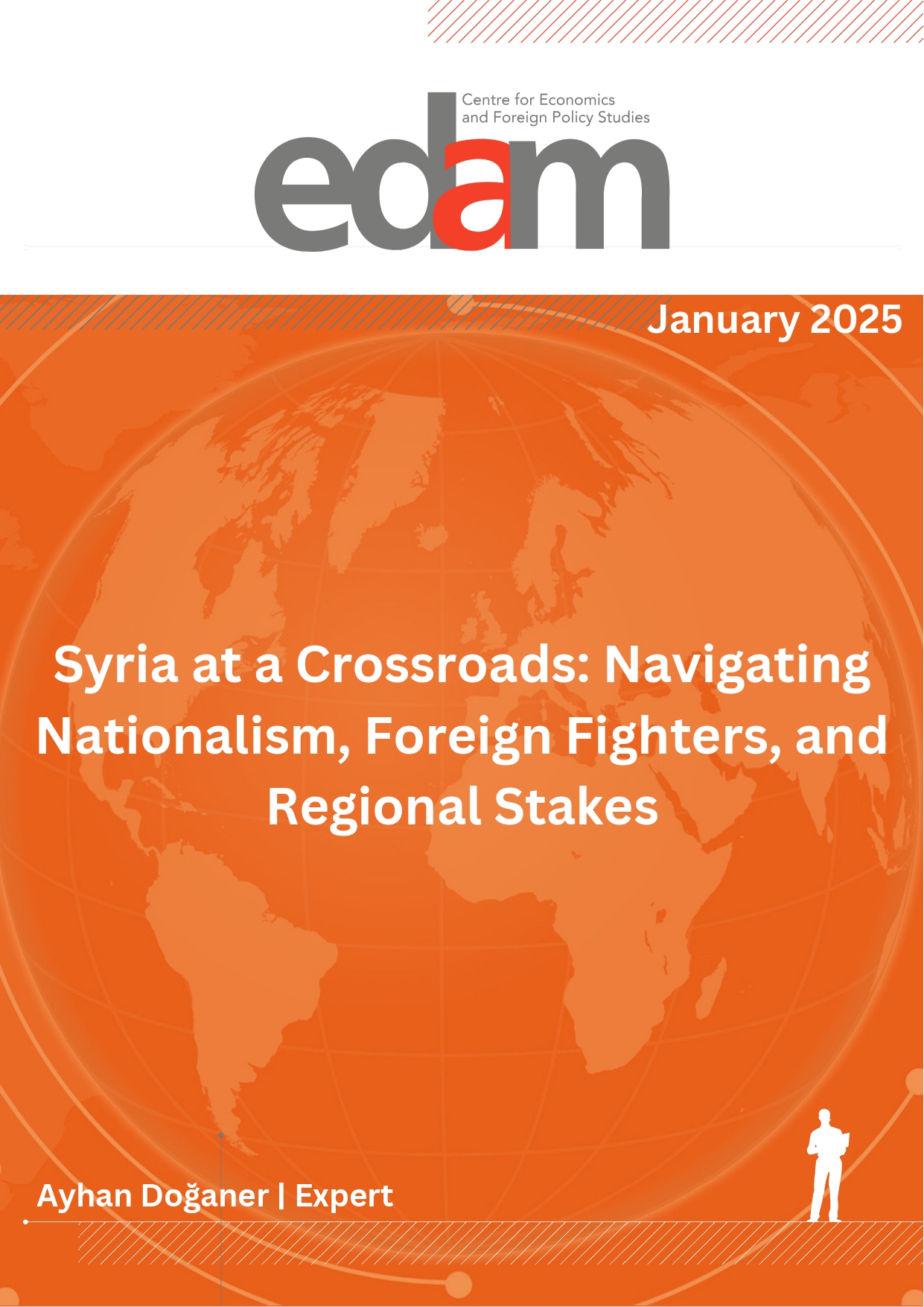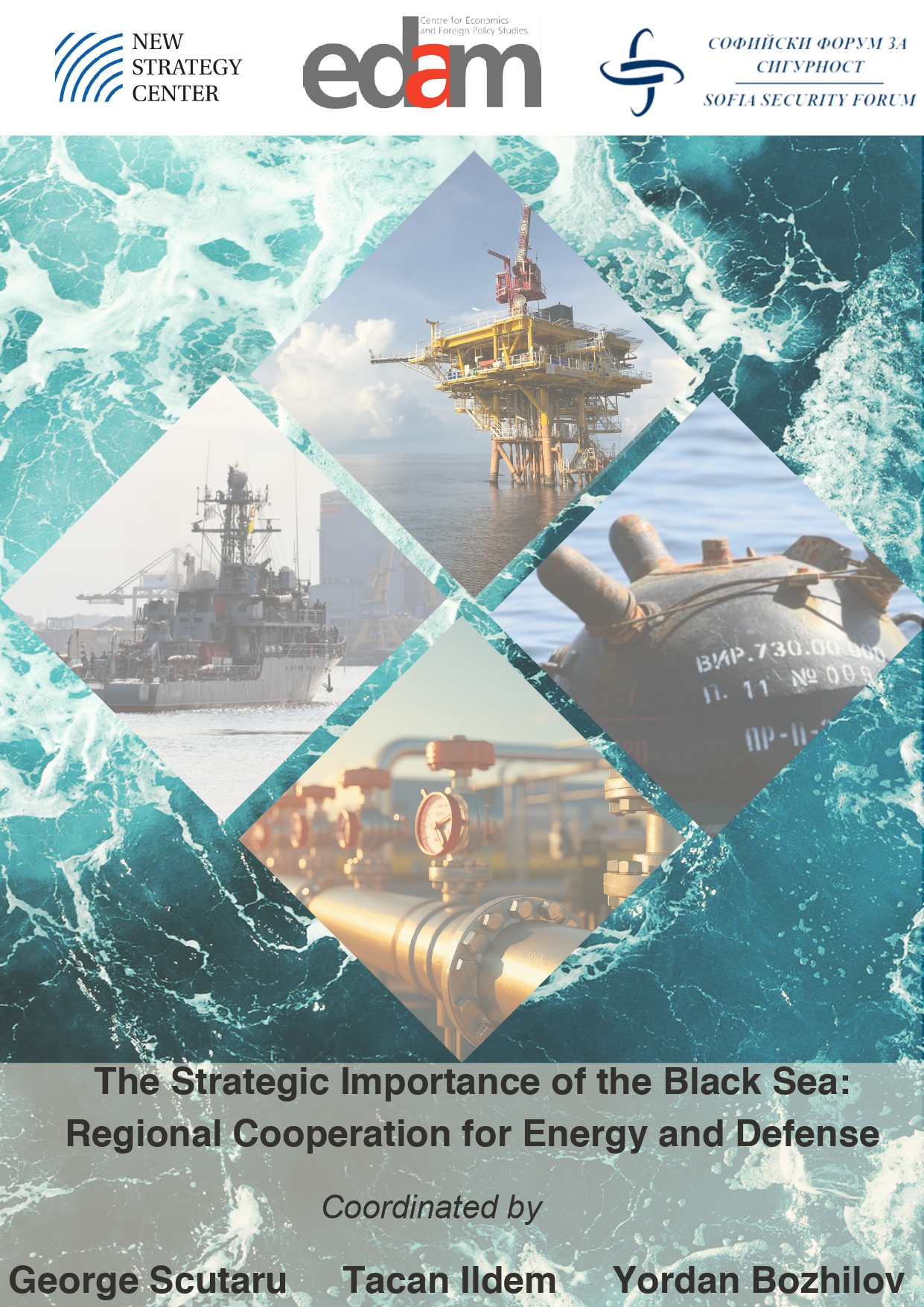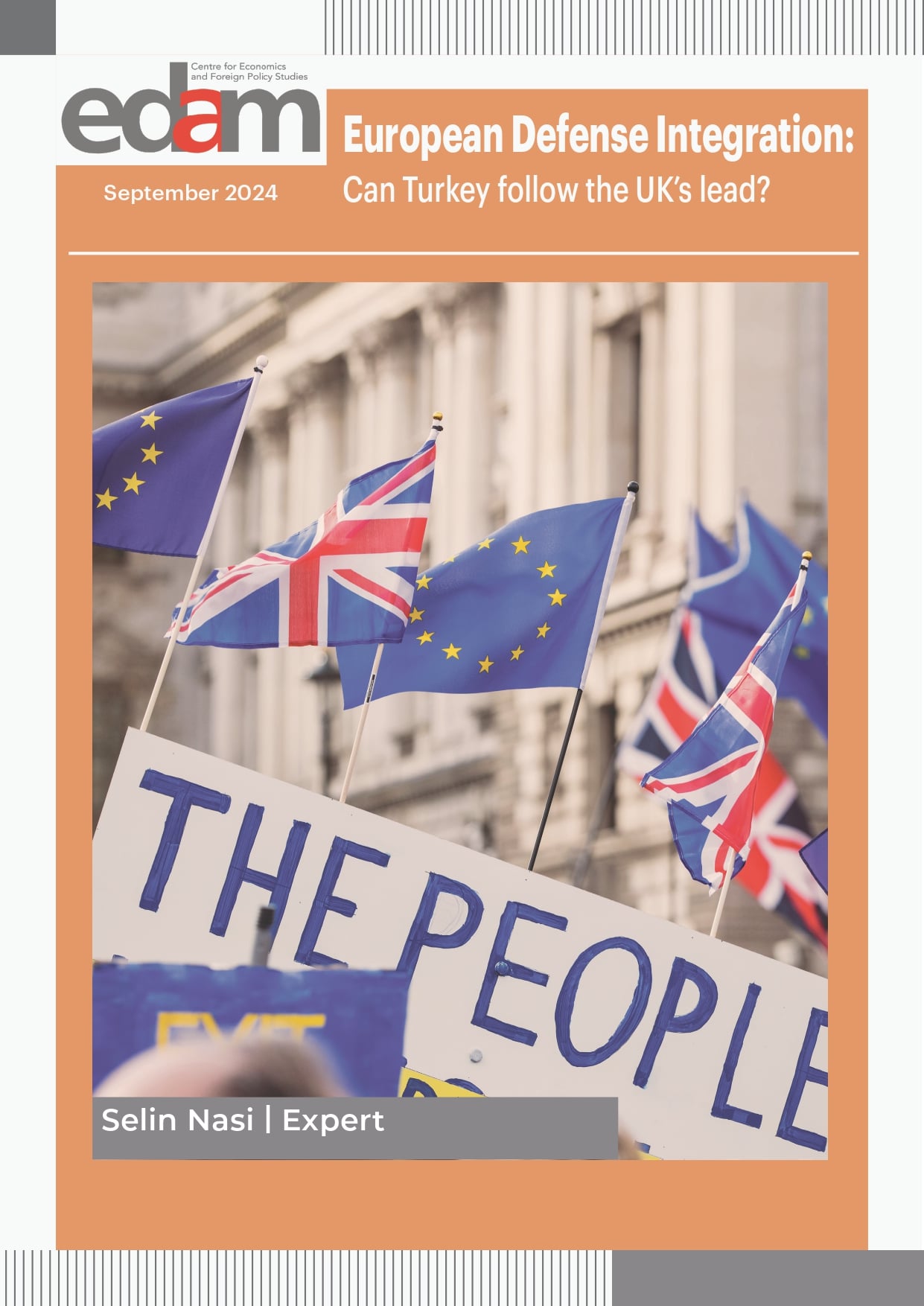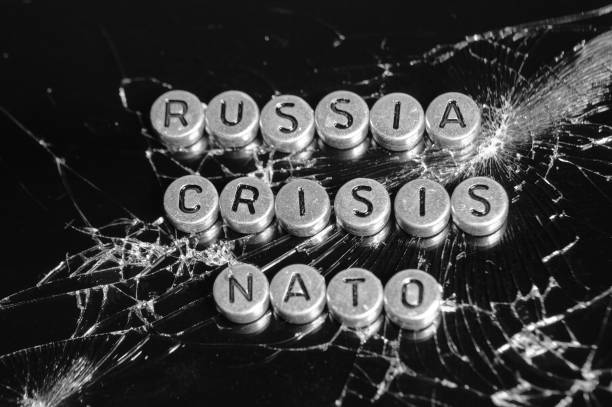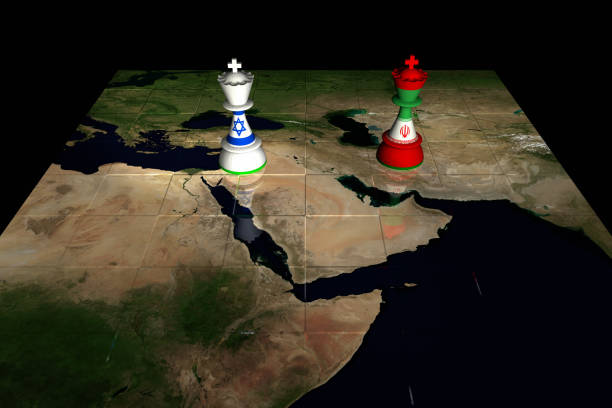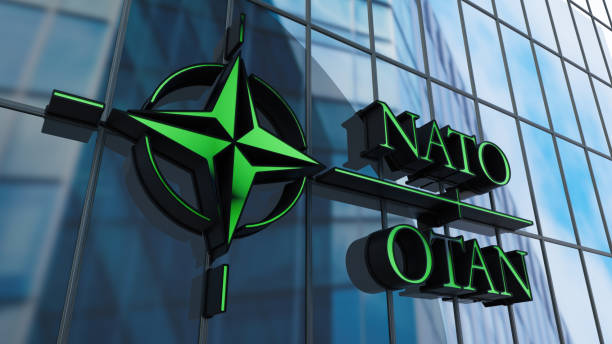Click here for the full report
Executive Summary
This policy brief examines the sources and limitations of Turkey’s relations with Russia since 2000 as well as the implications of Turkey’s lack of a clear vision for the Black Sea region for the future of its bilateral relations with Russia and the other international, regional and local actors in the Black Sea region.
The brief identifies the increasing predictability of political leaderships in both Russia and Turkey, Turkey’s process of Europeanization and its emergence as a global actor, the increasing self-confidence of Russia in regional and global politics and the instability in the Middle East and Central Asia as the main factors that brought these countries together in the 2000s. Ankara and Moscow have developed their bilateral relations in the Black Sea region very pragmatically even without developing any clear vision for the Black Sea region itself. Although these countries continue to cooperate in naval security, economic relations and new energy projects, they have significant rivalries related to their competitive energy strategies, conflicting security strategies as reflected in the suspended Conventional Forces in Europe (CFE) Treaty and NATO’s European missile defence system, and differing positions on the ethnoterritorial conflicts as well as the process of democratization in the Black Sea region.
It is noted that in contrast to the portrayals of Turkey’s relations with Russia in the 2000s as non-problematic, as opposed to the clearly problematic and conflictual years of the 1990s, a balanced account of Turkey’s relations with Russia should highlight the dynamics of both cooperation and conflict in these relations throughout the 2000s. While Russia’s policy towards Turkey aims at increasing Ankara’s ‘dependence’ on Moscow in strategic areas, such as energy, Ankara’s policy towards Moscow seeks to promote a greater ‘interdependence’ between these countries. If Turkey fails in increasing the level of ‘interdependence’ in its relations with Russia, Moscow could easily exploit Turkey’s existing dependencies on Russia, as in energy supplies, by imposing its will on Ankara in areas where they have conflicting interests, such as the ethnoterritorial conflicts in the Black Sea region.
This policy brief suggests that it is the limitations of Turkey’s bilateral cooperation with Russia that necessitate Ankara developing a clear vision for the Black Sea region which could harmonize its regional policies with those of Turkey’s main Western strategic partners, namely the US, NATO and EU. This would in turn mean that its dependence on Russia could be counterbalanced with these Euro-Atlantic relations in the Black Sea region. In addition, Turkey could also counterbalance its dependence on Russia by promoting its relations with the other littoral states in the Black Sea. Last but not least, Turkey could revitalize the regional role of the Black Sea Economic Cooperation Organization (BSEC) as a multilateral framewok where its members, including Turkey and Russia, could develop multilateral as well as bilateral relations through the reginal networks of cooperation in the Black Sea region
Introduction
The Black Sea region was the main area where the Ottoman and the Russian Empires struggled for regional dominance at the expense of the other. This rivalry for regional hegemony continued between their future states, modern Turkey and the Soviet Union, with the exception of the 1920s, especially during the Cold War period. The initial hopes that Turkey’s cooperation with the post-Soviet Russia could transform the Black Sea region into a democratic zone of international cooperation and economic development were dashed when both countries became involved in a fierce struggle for regional influence not only in the post-Soviet regions of Central Asia and the Caucasus, but also in the Balkans and the Eastern Mediterrenean throughout the 1990s.
In stark contrast with this conflicted background, both countries developed their relations in 2000s. Nevetheless, Turkey and Russia have considered their influence in the Black Sea region as central to their status as a regional power in the post-Cold War era. It is, therefore, very important to analyze the factors that shape the foreign policy orientations of these countries in the Black Sea region.
Contrary to the view that the recent rapprochement between Turkey and Russia in the 2000s could constitute a sustainable framework for a ‘strategic partnership’ between these countries[1], this discussion paper argues that the conflicting strategies of Turkey and Russia concerning the issues of energy, security, ethnoterritorial conflicts and democratization around the Black Sea could revive the geo-political and geo-economic rivalries between these countries, making ‘strategic partnership’ an inappropriate form of relationship in the foreseeable future. Although Turkey cooperates with Russia in the fields of maritime security, economic cooperation, and joint energy projects, these countries have significant rivalries related to their conflicting energy and security strategies as well as differing positions on the ethnoterritorial conflicts and the process of democratization in the Black Sea region.
As previously discussed, the main challenge for Turkey in its relations with Russia is to avoid any significant increase in its ‘dependence’ on Moscow in any strategic area, such as security and energy, and in fact to keep as independent as possible. This will in turn help Turkey to pursue her own interests in issues such as the peaceful settlement of ethnoterritorial conflicts and the promotion of democratization around the Black Sea region.
To do this, Ankara must develop a clear, genuinely original and independent vision for the Black Sea region which could contribute to the processes of democratization and liberalization as well as the development of regional networks of interdependence around the Black Sea. To decrease Turkey’s dependence on Russia, this vision would be best served by harmonizing Turkey’s regional policies with those of the other Black Sea countries and Turkey’s main Western strategic partners, namely the US, NATO and EU.
The policy brief starts with an analysis of the characteristics of Turkey’s relations with post-Soviet Russia in the 1990s. Afterwards, it discusses the sources of the rapprochement between Ankara and Moscow in the Black Sea region since 2000. Next, the policy brief will explore the areas where Russia and Turkey have been co-operating, including maritime security, economic partnerships and joint energy projects. Afterwards, the paper will discuss the areas where both countries have conflicting interests, including their energy and security strategies as well as conflicting positions on the ethnoterritorial conflicts and the process of democratization in the Black Sea region. The paper will conclude by discussing the implications of Turkey’s lack of a clear vision for the Black Sea in its relations with Russia and the prospects for future sustainable regional cooperation in the Black Sea region
Characteristics of Turkey’s Relations with the Post-Soviet Russia in the 1990s
The disintegration of the Soviet Union and the emergence of the post-Soviet Russia in 1991 created new risks and opportunities for Turkey. Although it was theoretically possible that these two states could have contributed to the development of regional cooperation in the Black Sea region through the Black Sea Economic Cooperation (BSEC) initiative of Turkey, in reality, the emerging power vacuum in the post-Soviet space, the Balkans and the Eastern Mediterrenean led to the rivalry for reginal dominance between these countries.
The economic dimension of Turkey’s relations with Russia at the bilateral level was very impressive throughout the 1990s. In fact, Turkey’s exports to Russia were a welcome development for Russian consumers as they became able to buy these relatively cheaper products at a time of major economic crisis that affected their daily lives throughout the 1990s. In this context, the ‘shuttle trade’ continued to dominate Turkey’s trade with Russia until 1998 financial crisis in Russia. This financial crisis hit Turkish economy severely, creating a mini economic crisis in Turkey as well. It severely affected the tradesmen in the Laleli district of Istanbul and their suppliers in some of Turkey’s provincial cities, that are also known as the ‘Anatolian tigers’, such as Gaziantep, Kayseri and Denizli.[2]
It is very important to note that Turkey’s bilateral economic cooperation with Russia did not bring about closer cooperation between these countries in the multilateral context of the Black Sea Economic Cooperation (BSEC) initiative, mostly due to Russia’s intentional neglect of the BSEC. Although Russia as the continual state of the Soviet Union was also a founding member of the BSEC, it had been very reluctant to contribute to the BSEC activities.[3] In the absence of Russia’s active support for the BSEC, Turkey convinced the BSEC members to invite Greece to join the BSEC. Ankara hoped that Greece with its functioning free market economy and its access to the rich financial resources of the EU could make significant contributions to the BSEC activities and decrease the financial burden of the BSEC on Turkey as the main donor country. In addition, through the Greek membership in the BSEC, it was hoped that the increase in the EU’s attention in the Black Sea affairs would counterbalance Russia’s influence in the Black Sea region, and would increase Turkey’s prospects for future EU membership.[4]
The failure of Turkey in translating its economic cooperation with Russia into a meaningful political dialogue was due to the rivalry for regional dominance in their immediate neighbourhoods: Central Asia, the Caucasus, the Balkans and the Eastern Mediterrenean. It was the disintegration of two socialist federations, namely the Soviet Union and Yugoslavia, that created a vacuum of power in these regions in the post-Cold War era. This rivalry had intensified further when Moscow and Ankara accused each other of intervening in their domestic affairs by supporting the Chechen and the Kurdish secessionism respectively.
The rivalry between Turkey and Russia in the Caucasus and Central Asia focused on the issues of ethnic nationalism and energy. For Moscow, pan-Turkism among the Turkic communities in the post-Soviet space was the main source of instability in these regions. Furthermore, ethnic Russian minorities in these regions also viewed Turkey as the main external supporter of these anti-Russian ethnic nationalist movements in and around Russia. In reality, however, these post-Soviet Turkic communities were not seriously interested in pan-ideologies, but rather in getting more economic aid to deal with the pressing socio-economic problems of the post-Soviet transition.[5]
Energy was another important concern of Russia that created the basis for regional rivalry with Turkey. Moscow considered that Russia could keep the post-Soviet states in the Caspian Sea region under its sphere of influence as long as these states were dependent on Russia for exporting oil and natural gas. Russia’s success in playing Azerbaijan and Kazakhstan against Turkmenistan and Iran over the status of the Caspian Sea made Russia a key player for the development of the hydrocarbon resources of the Caspian Sea region. Moscow also controlled the export pipelines for Kazakhtan, Turkmenistan and Azerbaijan.[6]
Likewise, Ankara perceived Russia as its main rival in the Balkans and the Eastern Mediterrenean. In the Balkans, Turkey was alarmed by the alliance between Serbia and post-Soviet Russia as Moscow’s support for the Serbian ultra-nationalist leader Slobodan Milosevic encouraged him to carry out a policy of ethnic cleansing in Bosnia-Herzogovina and Kosovo. Turkey also started to worry about Russia’s intentions in the Eastern Mediterrenean after Moscow decided to sell S-300 missile systems to the Greek Cypriots and Syria. Ankara feared that the sale of these missile systems to these countries would undermine its strategic superiority in the Eastern Mediterrenean.[7]
This mistrust between Turkey and Russia was not limited to their conficting interests in their immediate neighborhoods. They also accused each other of supporting secessionist movements in their respective countries. Moscow accused Ankara of supporting not only the Chechen secessionism but also the other secessionist movements in the North Caucasus and the Middle Volga regions, especially during the First Chechen War between 1994 and 1996. Likewise, Ankara made similar accusations against Moscow for supporting Kurdish secessionism in the southeast Turkey.[8]
Consequently, any attempt at the normalization of Turkey’s relations with Russia was doomed to fail throughout the 1990s, given the intensity of rivalries between Ankara and Moscow and the lack of mutual trust about the intentions of the other.
Sources of the Rapprochement between Ankara and Moscow in the 2000s
The rapproachment between Turkey and Russia since 2000 was not the outcome of a radical change in their policies regarding the Black Sea region, but rather a result of several developments in their general foreign policy orientations. These developments include the predictability of political leaderships in both Russia and Turkey, Turkey’s process of Europeanization and its emergence as a global actor, Russia’s increasing self confidence in regional and global politics as well as the instability in the Middle East and Central Asia. In fact, Ankara and Moscow have sought to improve their bilateral relations without a clear vision for the Black Sea region itself, which will be discussed in the penultimate section of this policy brief.
The predictability of political leaderships was one of the main factors that played a role in the improvement of Turkey’s relations with Russia during the 2000s. Unlike the 1990s, when political instability and the frequent changes in the political leadership increased unpredictability in both countries, the political leaderships in Turkey and Russia became more predictable in the 2000s. Vladimir Putin was elected in the first round of the presidential elections by getting more than 50 percent of the votes in March 2000 as Russia’s second post-Soviet president. He was re-elected as Russia’s president by getting more than 70 percent of the votes in 2004. Since a President cannot serve more than two consecutive terms, according to Russia’s constitution, Vladimir Putin decided to become Prime Minister and supported his very close associate Dmitry Medvedev for the post of presidency in 2008.[9] Vladimir Putin already declared that he will run for the Presidency again in the upcoming presidential elections in March 2012. As of February 2012, Vladimir Putin is widely expected to win these presidential elections due to his very high popularity ratings.
A similar predictability can also be seen in Turkey’s political leadership. The electoral victory of the Justice and Development Party led by Recep Tayyip Erdogan in 2002 marked the beginning of political predictability in Turkey in contrast to the unstable coalition governments throughout the 1990s. Turkey’s Prime Minister Recep Tayyip Erdogan and his Justice and Development Party succeded in winning the parliamentary elections in 2007 and 2011, considerably increasing their electoral support. It is not only the electoral popularity of Vladimir Putin and Recep Tayyip Erdogan in their countries, but also their charismatic political leadership styles and the personal friendship between them that established the basis of Turkey’s cooperation with Russia in the 2000s.
In addition to the predictablity of political leaderships in Russia and Turkey, the second factor that brought these countries closer to each other was Russia’s increasing self confidence in regional and global politics in 2000s. Moscow’s use of excessive military force against the Chechen secessionists with major human rights violations during the Second Chechen War, which started when Vladimir Putin became Russia’s Prime Minister in August 1999, reversed the decline in post-Soviet Russia’s self-confidence. In fact, the subsequent centralizing federal reforms in Russia that started in May 2000 eliminated the key elements of federalism and transformed Russia into an almost unitary state.[10]
Following the consolidation of Vladimir Putin’s authoritarian regime, Moscow started to see Turkey not as a challenge to its territorial integrity, but as a potential asset which might contribute to the consolidation of its control over the predominantly Muslim republics of the Russian Federation, such as Chechnya and Tatarstan as well as the Caucasus and Central Asia. In addition, Russia’s increasing global influence due to its use of oil and natural gas as foreign policy tools as well as its crucial role in dealing with key security threats, such as the war in Afganistan and the Iranian nuclear program, also increased its self-confidence in dealing with Turkey.
Another factor that brought Turkey and Russia closer to each other was Turkey’s process of Europeanization and its emergence as a global actor in 2000s. The decision of the Helsinki European Council to accept Turkey as a candidate country for full EU membership in 1999 was one of the most important turning points for Turkey, significantly contributing to its emergence as a global actor. The EU’s recognition of Turkey as a country that meets the Copenhagen criteria endorsed its democratic political system as well as its functioning free market economy. Turkey’s dynamic foreign policy as exemplified in its memberships in G-20 and the United Nations Security Council (2009-2010) have also marked Turkey’s emergence as a global actor.[11] In this context, Moscow’s decision to improve its relations with Ankara in 2000s reflects its interest in increasing its influence over this emerging global player. It was clear that Russia could not afford to neglect Turkey and its emerging role in European and global affairs.
Last but not least, Turkey’s cooperation with Russia in the 2000s is also made necessary by the increasing instability in the Middle East and Central Asia, especially in the aftermath of the horrendous terrorist attacks in New Yok and Washington DC on 11 September 2001. Russia and Turkey both expressed their support for the United States in the fight against international terrorism. Since the Middle East and Central Asia are located in their close neighborhoods, Moscow and Ankara have increased their cooperation in coordination with the United States for stabilizing these regions by signing the “Joint Action Plan for Cooperation in Eurasia” in New York on 16 November 2001.[12]
The creation of NATO-Russia Council (NRC) in Rome in 2002 established the institutional framework for the further development of Russia’s relations with NATO and its members, including the United States and Turkey. Likewise, in line with Turkey’s policy of closer relations with its neighbors, Ankara and Moscow agreed to establish the ‘High Level Cooperation Council’ during Russian President Dimitry Medvedev’s visit to Turkey in 2010.[13]
Dimensions of Turkey’s Cooperation with Russia in the Black Sea Region
Although the raproachment in Turkey’s relations with Russia has nothing to do with any change in their approach to the Black Sea region, Ankara and Moscow have nonetheless developed a significant level of cooperation in Black Sea region. Turkey’s cooperation with Russia in the Black Sea region could be examined by focusing on its three dimensions: naval security, economic partnership and energy projects.
Turkey’s naval security cooperation with Russia in the Black Sea context is a result of the changes in the naval balance of power in the Black Sea to the advantage of Turkey. After the collapse of the Soviet Union in 1991, the Soviet Black Sea Fleet, based in the Ukrainian port of Sevastapol, became dysfunctional as Russia and Ukraine were unable to agree on how to get their shares in the Black Sea Fleet for six years, until 1997. In any case, Russia and Ukraine’s post-Soviet economic crisis prevented them even from sustaining the maintenace of the warships, let alone the modernization of their Black Sea fleets. Since the other countries around the Black Sea, namely Bulgaria, Romania and Georgia, also lacked a significant naval force, Turkey as a NATO member gained naval superiority in the Black Sea region.
Relying on its naval superiority, Turkey’s naval strategy was based on engaging all other Black Sea littoral states, particularly Russia, in its own regional naval security cooperation frameworks. Ankara also hoped that this could contribute to the consolidation of NATO’s superiority in the Black Sea indirectly. The first such naval security initiative is the BLACKSEAFOR that was established in Istanbul with the participation of all littoral states of the Black Sea in 2001. Its main aims include the regulation of search-and-rescue missions, the cleaning of the Black Sea from sea mines as well as regular visits to the naval bases of the littoral states by the navies of other countries.[14]
Turkey intensified its naval cooperation with Russia and the other Black Sea littoral states with its ‘Black Sea Harmony’ mission in 2004. This mission is a response to the soft security challenges, including international terrorism, organized crime as well as illicit drugs and human trafficiking. So far, Turkey, Russia and Ukraine have been cooperating to deal with these soft security challenges in the Black Sea. Turkey as a NATO member country coordinates the activities of ‘the Black Sea Harmony’ with that of NATO’s ‘Active Endeavour’ mission in the Mediterrenean through regular reporting. By doing so, Turkey extends NATO’s naval security strategy to the Black Sea without changing the Montreaux Convention regime.[15]
Another dimension of Turkey’s cooperation with Russia in the Black Sea region is economic partnership. Turkey’s economic relations with Russia continued to develop in the 2000s with Moscow becoming the main trade partner of Ankara, while Turkey became the fifth largest trade partner of Russia. Turkey’s trade deficit to the advantage of Russia stems from the fact that Turkey imports mainly energy from Russia. It seems very difficult for Turkey to increase the volume of its exports to Russia to the level that could eliminate its trade deficit in the foreseeble future. Turkey’s construction companies continue to undertake major construction projects in Russia with some Turkish direct investment in Russian economy. Likewise, Russian direct investment in Turkey increased considerably, mainly in the energy and tourism sectors. Surprisingly, tourism has become one of the driving forces in Turkey’s economic cooperation with Russia. The fact that millions of Russian tourists spend their holidays in Turkey, mostly around Antalya, and the growing number of Russian-Turkish marriages demonstrate that in addition to economic ties, socio-cultural ties are also developing due to the growing economic relations.[16]
Despite the progress in bilateral economic relations between Turkey and Russia, the Black Sea Economic Cooperation (BSEC) Organization has not become an effective multilateral framework for promoting regional economic cooperation in the Black Sea region. Unlike the 1990s, this was not due to Moscow’s deliberate policy of neglect, but because Moscow had serious differences with some of the BSEC members, such as Georgia and Romania. It should be noted here that the BSEC’s main weakness lies in its decision-making procedure. Since almost all of the important decisions have to be taken unanimously, disagreements and rivalries among the member states make cooperation very difficult to achieve.[17]
Last but not least, energy projects constitute another very important dimension of Turkey’s cooperation with Russia throughout 2000s. The origins of Turkey’s energy cooperation with Russia go back to the Soviet era when Ankara agreed to import natural gas from the Soviet Union through a natural gas pipeline known as the ‘western route’, passing through Ukraine and Bulgaria. Turkey’s energy cooperation with Russia intensified after the realization of the Blue Stream natural gas pipeline project, providing Turkey with Russian natural gas through a pipeline constructed under the Black Sea. However, the Blue Stream project has increased Turkey’s dependence on Russian natural gas considerably. Gazprom, Russia’s natural gas monopol and one of the biggest energy companies in the world, seems to be interested in having a considerable share in the natural gas distribution networks inside Turkey as well.[18]
In addition to Turkey’s energy cooperation in the field of natural gas, Russia is also one of the key crude oil suppliers to Turkey. Turkey’s dependence on Russia’s crude oil may increase in the near future due to the internationally agreed restrictions on importing oil from Iran as part of the sanctions against Iran’s non-compliance with the nuclear non-proliferation regime. Russian oil companies have also shown great interest in Turkey’s dynamic fuel oil sector.
One of Russia’s leading oil companies, Lukoil, entered Turkey’s energy market by buying the Akpet fuel retailer company.[19]
Turkey’s energy cooperation with Russia entered into a new phase with the decision to build a nuclear plant for generating electricity in Mersin Akkuyu. Turkey’s Energy Minister Taner Yıldız and Russia’s Deputy Prime Minister Igor Sechin signed an agreement on the construction of the Akkuyu nuclear power plant on 12 May 2010. This project has been criticized by environmentalists for its possible environmental risks, especially after the Fukushima disaster in Japan in 2011. These environmentalists note, firstly, that Turkey is located in an earthquake zone. Secondly, Turkey does not have expertise in verifying the safety measures in and around the nuclear plant. Finally, Russia’s reputation in nuclear safety is not very high due to the Chernobyl nuclear accident.[20] In addition to these environmental concerns, the fact that the Akkuyu nuclear power plant could increase Turkey’s already very high energy dependence on Russia constitutes another important criticism of this project.
Limitations of Turkey’s Cooperation with Russia in the Black Sea Region
Turkey and Russia have serious conflicting interests that could limit the scope of their cooperation in the Black Sea region. The conflicting energy and security strategies of Turkey and Russia as well as their conflicting approaches to the post-Soviet frozen conflicts and the process of democratization in the Black Sea region constitute the limitations of Turkey’s cooperation with Russia in the Black Sea region.
Although Turkey and Russia cooperate in the realization of certain energy projects, their energy strategies are very competitive and clearly rival to each other. This is one of the main limitations of Turkey’s cooperation with Russia in the Black Sea region. In fact, Turkey’s energy strategy is based on the creation of an East-West energy corridor between the hydro-carbon producing countries in the Caspian Sea region and the energy consumers in Europe. This East-West energy corridor is labelled the ‘Southern Energy Corridor’ by the EU as a vital alternative to its dependence on the Russian-controlled Eastern Energy Corridor, which is highly unreliable due to Moscow’s use of energy as a foreign policy tool since Vladimir Putin’s rise to the Russian Presidency at the end of 1999.[21] The strategic importance of the ‘Southern Energy Corridor’ stems from the fact that it could enable the EU to diversify its energy supplies and minimize its dependece on the already very high energy dependence on Russian energy sources.
Turkey has been partly successful in weakening Russia’s monopoly over the export routes of the Caspian hydrocarbon resources. In close cooperation with Azerbaijan, Georgia and the United States, Ankara succeeded in bringing Azerbaijan’s crude oil and natural gas to Turkey through the Baku-Tbilisi-Ceyhan (BTC) crude oil pipeline and the Baku-Tbilisi-Erzurum (BTE) natural gas pipeline. The successful realization of these projects has reduced Russia’s influence over Azerbaijan’s energy resources and Turkey’s dependence on Russia by enabling Baku to bypass Russia for its access to international energy markets and Turkey to diversify its energy sources.[22]
Currently,Turkey seeks to link the Caspian and the Middle Eastern natural gas supplies to the European natural gas network through its Nabucco natural gas pipeline project, which will be constructed between Turkey and the Austrian natural gas hub in Baumgarten, passing through Bulgaria, Romania and Hungary. This project is a rival of the Russian natural gas project of the South Stream that follows the same route except that Romania is replaced by Serbia in the South Stream project. Although the Nabucco project’s main problem lies in its failure to secure an adequate natural gas supply (Azerbaijan’s Shah Deniz 2 field could meet only half of Nabucco’s capacity), its main strength lies in the endorsement of the European Commission for this project. In contrast, while the South Stream project is not endorsed by the European Commission, its main strength lies in its lack of a natural gas supply problem since Russia’s own natural gas reserves are clearly sufficient for the realization of this project.[23]
In a very surprising move, Turkey’s approval for the planned construction of the South Stream natural gas pipeline under the Turkish Exclusive Economic Zone in the Black Sea on 28 December 2011 strengthened Russia’s position in the politics of pipelines in the Black Sea region.[24] Although Russia is clearly the main beneficiary of this deal, Turkey has some gains and losses. Turkey is believed to benefit from this deal mainly by getting a considerable reduction in the price of Russian natural gas from the Western route, while this reduced price has not yet been publicized. On the other hand, the deal is widely seen as a blow to Ankara’s declared strategy of becoming an an energy hub for Europe as an alternative to Russia. The deal demonstrated the weakening of Turkey’s commitment to the Southern Energy Corridor of the EU as well as the Nabucco project. In addition, the deal is likely to decrease Russia’s dependence on Ukraine which is by-passed by the South Stream natural gas pipeline, making Kiev more vulnerable to Russian pressures. Clearly, this is not a good news for Turkey, nor its regional and non-regional partners.
Turkey and Russia also have conflicting security strategies related to the Conventional Forces in Europe (CFE) Treaty and NATO’s European missile defence system. Turkey, together with NATO allies have already become concerned by Moscow’s noncompliance with the 1999 OSCE Istanbul Summit decisions, which required Russia to withdraw its military forces from the ethnoterritorial units within Moldova and Georgia (discussed below). Russia’s suspension of the Conventional Forces in Europe (CFE) Treaty created further suspicions about Russia’s security strategies towards NATO members, including Turkey. Turkey is particularly worried about Russia’s military deployment in the North Caucasus.[25]
Likewise, Russia’s security strategy has also become increasingly more confrontational towards NATO’s planned European missile defence system, to which Turkey makes a significant contribution. Although Russia declared that it could cooperate with NATO in developing NATO’s European missile defence system during the NATO-Russia Council meeting in Lisbon in 2010, it has become increasingly reactionary as NATO’s European missile defence system started to take shape since mid-2011. Alarmingly, when Ankara announced its decision to host one of the radars of this system near Kurecik village of Malatya, Russia threatened Turkey by deploying new missiles in the North Caucasus in order to target this radar facility. Moscow also cancelled its support for the planned Samsun-Ceyhan oil pipeline project. This has demonstrated the seriousness of the differences between the security strategies of Ankara and Moscow.[26]
Another important limitation to Turkey’s cooperation with Russia is the conflicting approaches of Turkey and Russia to the post-Soviet frozen conflicts in the Black Sea region; namely, the conflicts over the status of Transdniestr in Moldova, South Ossetia and Abkhazia in Georgia and Nagorno-Karabagh in Azerbaijan. While Turkey considers these ethno-territorial units as parts of the states from which they seek independence, Russia uses these ethno-territorial units as foreign policy tools to keep the states in question within its sphere of influence.[27]
Ankara supports the peaceful settlement of these frozen conflicts because this could enable Turkey to develop its relations with Armenia, Azerbaijan, Georgia and Moldova. It could be noted here that given Russia’s reluctance to contribute to the settlement of these conflicts, Turkey’s existing strategy of establishing a linkage between the process of normalization with Armenia and the Nagorno-Karabagh conflict could be replaced by a policy of revitalizing the normalization process with Armenia, without citing the settlement of the Nagorno-Karabagh conflict as a precondition. In fact, the protocols signed between Turkey and Armenia in Zurich in October 2010 makes no clear reference to the Nagorno-Karabagh conflict at all.[28]
In this way, the establishment of better relations between Turkey and Armenia could promote regional dialogue and cooperation in the Caucasus, as stipulated in Turkey’s proposal for the Caucasus Stability and Cooperation Platform. Such a strategy could also counterbalance Russia in the Caucasus and the Black Sea region by undermining Moscow’s policy of maintaining status quo by playing the various parties against each other.[29]
Last but not least, another factor that limits Turkey’s cooperation with Russia is the conflicting approaches of these countries to the process of democratization or the ‘color revolutions’ in the Black Sea region. These processes of democratization, initiated by the ‘color revolutions’, brought more popular and clearly anti-Russian leaderships to power. The first succesful color revolution in the Black Sea region was the ‘Rose Revolution’ of Georgia that was led by Mikheil Saakashvili in 2003.[30] The next one was the ‘Orange Revolution’ of Ukraine under the leadership of Viktor Yushchenko in 2004. Despite the authoritarian turn in Ukraine after Viktor Yanukovich’s election as President in 2010, the process of democratization is still vibrant in Ukraine, Moldova, Azerbaijan and Armenia.
Turkey has supported the democratic changes in Georgia and Ukraine, while Moscow sought to punish them with economic and military tactics. Russia actually harmed Ukraine by increasing the price of natural gas in 2006, and harmed Georgia by using military force in 2008.[31] Turkey and Russia’s differences over the processes of democratization became very clear in the case of Syria where Moscow sided with Bashar al-Assad while Ankara actively supported the democratic aspirations of the opposition in Syria. It is even more likely that Turkey and Moscow could maintain their diametrically opposed positions on similar calls for democratic change in the Caucasus and Central Asia, setting these major regional actors in the Black Sea region against each other. Its implications for their relations in the Black Sea context will be discussed below.
These limitations of Turkey’s cooperation with Russia signify the lack of a common vision for the regional issues in the Black Sea region. Nevertheless, it should be noted that this is not an outcome of their clashing visions for the Black Sea region. In fact, what is more surprising is that both Turkey and Russia respond to the developments in the Black Sea region very pragmatically, rather than relying on a clearly identifiable vision for the region.
Lack of a Vision for the Black Sea Region in Turkey’s Relations with Russia and Prospects for Future
It is very important for Turkey to identify its vision of the Black Sea region as something different from that of Russia since its existing pragmatic cooperation with Russia on various issues leads to a mistaken impression that Turkey and Russia share a common vision of the Black Sea as their ‘condominium’, or a jointly controlled region with mutually agreed spheres of influence. As discussed above, Turkey’s regional interests differ significantly from Russia’s interests on several issues from energy and security strategies to their posions on ethnoterritorial conflicts and the process of democratization in the Black Sea region.
It should be noted here that both Turkey and Russia lack even a clear vision for the Black Sea region. Their priorities change in response to the changes in the very dynamic strategic environment in the Black Sea region. Cooperation and conflict between these countries over a number of issues in the Black Sea region have been guided by their general foreign policy priorities rather than their shared approach to the regional issues in the Black Sea region. Turkey needs to develop a clear vision for the Black Sea region since the development of such a vision could enable Ankara to differentiate its views and positions on regional issues from those of Russia. In this way, Turkey could present its own approach to the regional issues in the Black Sea, beyond which Ankara might further develop regional cooperation with the other Black Sea countries.
Any viable vision for the Black Sea region should set principles that are in line with the common global and regional values, principles, identities and interests of the regional and non-regional actors, including the US, NATO and EU. In order to solve the problems in the Black Sea region, there is a need to promote the values of multiculturalism, pluralism and the peaceful settlement of conflicts more effectively. In this respect, any such vision needs to identify ways of promoting the regional processes of globalization, democratization and liberalization as well as the regional networks of interdependence around the Black Sea.
In line with this outline, Turkey’s own vision for the Black Sea region needs to take certain dynamics of the area into account. First of all, Ankara needs to develop a truly regional vision for the Black Sea that is independent from the ups and downs in its bilateral relations with Moscow. So far, Turkey’s approach to the Black Sea region has focused on its cooperation with Russia and neglected its relations with the other states in the area, including Georgia, Ukraine, Romania and Bulgaria.[32] In fact, Turkey could develop its relations with these countries without creating problems with Moscow .
The second important factor that Turkey has neglected in its relations with Russia and its approach to the Black Sea region so far is the need to support the integration of other Black Sea countries into Euro-Atlantic structures as a protection from the pressures of Russia. Turkey as a strategic partner of the US and a NATO member as well as a candidate country for full EU membership could promote its Euro-Atlantic role to support the integration of the Black Sea region more closely into the Euro-Atlantic structures and weaken Russian pressure over these countries.[33] In this way, Turkey could make significant contributions to the European Neighborhood Policy (ENP) and the Eastern Partnership (EaP). This could strengthen not only the role of the Euro-Atlantic structures in the Black Sea region, but also Turkey’s position in these Euro-Atlantic structures, especially at a time when Turkey’s relations with the EU are expected to be full of ups and downs in the foreseeble future.
Thirdly, Turkey needs to counterbalance its dependence on Russia, especially in energy. Ankara could continue to diversify its energy sources by developing its energy cooperation with the Caspian and the Middle Eastern countries. This will not only decrease its dependence on Russia but also increase its chances of becoming an energy hub for Europe. In this respect, Turkey could futher harmonize its energy strategy with that of the EU. Both Turkey and EU have shared interest in strengthening their bargaining position against Russia. Turkey’s strategic partnership with the US is also very important for counterbalancing the Russian influence in the Black Sea region.
Realistically speaking, there is no strong basis for optimism about the prospects for regional cooperation in the Black Sea region. In fact, the Black Sea region is very likely to remain a buffer zone between Russia and the Euro-Atlantic world in the forseeble future. Although Turkey might find pragmatic cooperation with Russia beneficial for its own interests in the short-term, as a member of the Euro-Atlantic structures, Turkey is not likely to develop any strategic partnership with Russia in the long term. This is mainly due to the serious differences in the strategic interests of Ankara and Moscow.
It is mistaken to assume that the current status quo and regional balance of power may necessitate the adoption of a ‘business as usual’ approach in Turkey’s pragmatic relations with Russia and in its approach towards issues in the Black Sea region. In all likelihood, the existing status quo may not be maintained in the foreseeble future due to the very dynamic nature of the region, where the forces of change tend to prevail over the forces of status quo. In fact, the current state of affairs was just unthinkable 25 years ago. In view of this, Russia and its role in the Black Sea region are likely to be very different from their present forms in the long term, though the direction and speed of this change is not clear yet.
As discussed above, Turkey and Russia have opposing views on supporting the processes of democratization or ‘the Arab Spring’ in the Middle East and North Africa (MENA) region, during which the popular uprisings of the Arab masses led to the overthrowing of the despotic regimes of the Tunisian President Zine El Abidine Ben Ali on 14 January 2011, the Egyptian President Hosni Mubarak on 11 February 2011 and the Libyan leader Muammar Gaddafi on 23 August 2011. Turkey with its democratic model and a functioning free market inspired the masses, especially the youth, in Arab countries in their demands for an end to corruption, better economic development, greater democratization and joining international society.[34] Unlike Turkey, which supported these popular movements actively, Russia’s originally neutral position in the cases of Tunisia, Egypt and partly in the case of Libya, has increasingly become a very reactionary one, culminating in an alliance with Bashar al-Assad’s regime in the Syrian case.[35]
The different attitudes of Turkey and Russia over the calls for greater democratization could lead to further frictions in their relations, if and when such popular movements take place in Russia and its neighbors in the Black Sea, the Caucasus and Central Asia. Although the popular protests following the Russian State Duma elections on 4 December 2011 may not lead to a major change in Russian politics, they clearly signal that Russia and other post-Soviet authoritarian regimes are not immune from the demands for greater democratization.[36] Turkey is very likely to support the calls for democratization in these post-Soviet countries as the current rampant authoritarianism in these regions limits Turkey’s ability to project its regional influence to any considerable effect.[37]
It is very important to discuss the implications of Vladimir Putin’s third presidential term for Turkey’s relations with Moscow and the Black Sea region, in general. It seems that Vladimir Putin tends to pursue more authoritarian policies in Russian domestic politics and assertive policies in international relations, especially in Russia’s relations with its neighbours. This may create extra problems in Turkey’s relations with Moscow. Besides, Vladimir Putin’s idea of the ‘Eurasian Union’ carries with it the risk of creating a Moscow-centric web of relations in the Black Sea region, targeting the majority of the Commonwealth of Independent States (CIS) members. Turkey’s strengthening of the BSEC would counterbalance Russia’s hegemonic ambitions considerably, providing the smaller states with more opportunities to resist Russian pressures.
To sum up, Turkey needs to counterbalance its relations with Russia in the Black Sea region by developing its cooperation with other regional and non-regional actors. This could enable Turkey to establish new networks of cooperation and interdependence among the global, regional and local actors in the Black Sea region, creating a viable vision for Turkey in developing its relations with both Russia and other regional and non-regional actors in the Black Sea in a more balanced way.
[1] The Russian President Dmitry Medvedev, for example, labelled the relations between Turkey and Russia as a ‘strategic partnership’ during his visit to Turkey in 2010. See Jorge Benitez, ‘Medvedev: “Turkey and Russia are strategic partners not only in words but in deeds”‘, NATO Source, May 12, 2010, http://www.acus.org/natosource/medvedev-turkey-and-russia-are-strategic-partners-not-only-words-deeds (accessed on 2 January 2012)
[2] For a detailed analysis of economic relations between Turkey and Russia in the 1990s, see Gulten Kazgan, ‘A Survey of Turkish-Russian Economic Relations in the 1990s’, Insight Turkey, Vol. 4, No.2, 2002, pp. 101-111.
[3] Oktay F. Tanrısever, ‘Sovyet Sonrası Dönemde Rusya’nın Karadeniz Politikası’, Avrasya Dosyası, Vol.13, No.1, 2007, p.185.
[4] See Mustafa Aydin, ‘Europe’s New Region: The Black Sea in the Wider Europe Neighbourhood’, Southeast European and Black Sea Studies, Vol. 5, No. 2, May 2005, pp. 257–283 and Panagiota Manoli, ‘Bringing the Black Sea Economic Cooperation and the European Union Closer’, Southeast European and Black Sea Studies, Vol. 5, No. 2, May 2005, pp. 167–169, and Mustafa Aydin & Omer Fazlioglu, ‘The Turkish Policy towards the Wider Black Sea Region and Its Chairmanship of the BSEC (May – October 2007)’, Xenophon Paper, No 2, 2007, pp.129-140.
[5] Idris Bal, Turkey’s Relations with the West and the Turkic Republics: The Rise and Fall of the “Turkish Model”, Aldershot: Ashgate, 2000.
[6] Oktay Tanrisever, ‘Turkey and the Politics of Pipelines in the Black Sea Region’, Energy Security and Security Policy: NATO and the Role of International Security Actors in Achieving Energy Security, Ed., Phillip Cornell, Oberammergau: The NATO School, 2007, pp.74-78.
[7] See Vladislav Komarov, “Russian Defenses for NATO Member Greece,” Russia Journal, 21 December 1999.
[8] Robert Olson, ‘Turkish and Russian Foreign Policies, 1991–1997: The Kurdish and Chechnya Questions’, Journal of Muslim Minority Affairs, Vol. 18, No. 2, 1998, p.209.
[9] Peter J.S. Duncan, ‘Regime and Ideology in Putin’s Russia’ in Peter J. S. Duncan, (Ed.). Convergence and Divergence: Russia and Eastern Europe into the Twenty-First Century, London: UCL SSEES, pp.139-158, Oktay F. Tanrisever, ‘Analyzing the Duma Elections in Russia’, Insight Turkey, Vol.10, No.2, April 2008 81-92, and Henry H. Hale, ‘Nesomnennaia neopredelennost’: Kakoe nasledstvo ostavit 2008 god’, Polit.ru, 13 May 2008.
[10] Oktay F. Tanrısever, ‘Why Are Federal Arrangements Not Panacea for Containing Ethnic Nationalism? Lessons from the Post-Soviet Russian Experience’, Japanese Journal of Political Science, Vol. 10, No. 3, 2009, pp.333-352.
[11] See Sinan Ulgen, ‘A Place in the Sun or Fifteen Minutes of Fame? Understanding Turkey’s New Foreign Policy’, Carnegie Europe, No.1, 2010 and Soli Ozel, ‘Turkey’, The Foreign Policies of Emerging-Market Democracies What Role for Human Rights and Democracy?, ed., Fiona Hill, Washington DC: Brookings, 2011, pp. 17-19.
[12] Bulent Aras, New Geopolitics of Eurasia and Turkey’s Position, London: Frankcass, 2002.
[13] ‘Türkiye-Rusya Federasyonu Siyasi İlişkileri’, http://www.mfa.gov.tr/turkiye-rusya-siyasi_iliskileri-.tr.mfa (accessed on 12 January 2012)
[14] See Bülent Karadeniz, ‘Security and Stability Architecture in the Black Sea’, Perceptions, Winter 2007, pp.95-117.
[15] Ibid.
[16] See Sergey Markedonov and Natalya Ulchenko, ‘Turkey and Russia: An Evolving Relationship’, 19 August 2011, http://carnegieendowment.org/2011/08/19/turkey-and-russia-evolving-relationship/4sy3 (accessed on 3 January 2012)
[17] Ioannis Stribis, ‘Decision-Making in the BSEC: A Creative Cartography of Governance’, Xenophon Paper, No 1, 2006, pp.21-26.
[18] Hasan Selim Ozertem, ‘Türkiye-Rusya Hattında Enerji Pazarlıkları’, http://www.usakgundem.com/yazar/2256/türkiye-rusya-hattında-enerji-pazarlıkları.html (accesed on 5 January 2012)
[19] See ‘Bölgesel Stratejimiz’, http://www.lukoil.com.tr/Contents/Bolgesel_Stratejimiz/4/Default.aspx (accessed on 24 January 2012)
[20] For a comprehensive analysis of Turkey’s interest in using nuclear power to generate electricity and the text of the Agreement between Turkey and Russia concerning the Akkuyu Nuclear Power Plant, see Sinan Ülgen, ed., Nükleer Enerjiye Geçişte Türkiye Modeli, Istanbul: EDAM, 2011.
[21] Jeronim Perovic, Robert W. Orttung, Andreas Wenger, Russian Energy Power and Foreign Relations: Implications for Conflict and Cooperation, eds., New York: Routledge, 2009.
[22] Oktay Tanrisever, ‘Turkey and the Politics of Pipelines in the Black Sea Region’, Energy Security and Security Policy: NATO and the Role of International Security Actors in Achieving Energy Security, Ed., Phillip Cornell, Oberammergau: The NATO School, 2007, pp.74-78.
[23] See ‘Overview’, http://www.nabucco-pipeline.com/portal/page/portal/en (accessed on 2 January 2012) and ‘The South Stream’, http://south-stream.info/index.php?id=2&L=1 (accessed on 2 January 2012)
[24] Jacob Gronholt-Pedersen, ‘Turkey Approves Russian Gas Plan’, The Wall Street Journal, 29 December 2011.
[25] ‘Russia suspends arms control pact’, http://news.bbc.co.uk/2/hi/6898690.stm (accessed on 5 January 2012)
[26] ‘Turkey Joins NATO’S Missile Defense System’, http://blogs.voanews.com/breaking-news/tag/missile/ (accessed on 12 January 2012)
[27] Sabine Fischer, ‘Abkhazia and the Georgian-Abkhaz Conflict: Autumn 2009’, EUISS Analysis, 7 December 2009
[28] . See “Protocol on the Establishment of Diplomatic Relations between the Republic of Turkey and the Republic of Armenia,” http://www.mfa.gov.tr/data/DISPOLITIKA/t%C3%BCrkiye-ermenistan-ingilizce.pdf
[29] Oktay F. Tanrısever, ‘11 Eylül Sonrası Dönemde Kafkasya’da Bölgesel Güvenlik: Eski Çatışmalar ve Yeni Açılımlar’, Orta Asya ve Kafkasya Araştırmaları, Vol. 6, No. 11, 2011, pp.1-17.
[30] Cory Welt, ‘Georgia’s Rose Revolution: From Regime Weakness to Regime Collapse’, in Valerie Bunce, Michael A. McFaul and Kathryn Stoner-Weiss, eds., Democracy and Authoritarianism in the Post-Communist World, Cambridge: Cambridge University Press, 2010, 155-188.
[31] Oktay F. Tanrısever, ‘11 Eylül Sonrası Dönemde Kafkasya’da Bölgesel Güvenlik: Eski Çatışmalar ve Yeni Açılımlar’, Orta Asya ve Kafkasya Araştırmaları, Vol. 6, No. 11, 2011, pp.1-17.
[32] For an eloquent analysis of Turkey’s balancing strategy between Russia and the West as well as its prioritization of its relations with Russia in the Caucasus, see Nigar Göksel, ‘Turkish Policy towards the Caucasus: A Balance Sheet of the Balancing Act’, EDAM Black Sea Discussion Paper Series, No.1, 2011, pp. 10-15, available at http://www.edam.org.tr/eng/document/Black_Sea_Paper_Series1.pdf
[33] For the analysis of the Black Sea strategies of the US and EU see, Eugene B. Rumer and Jeffrey Simon, Toward a Euro-Atlantic Strategy for the Black Sea Region, Institute for National Strategic Studies Occasional Paper, No. 3, Washington, D.C.:National Defense University Press, April 2006, and Fabrizio Tassinari, ‘A Synergy for Black Sea Regional Cooperation: Guidelines for an EU Initiative’, CEPS Policy Brief No. 105/June 2006.
[34] See Meliha Benli Altunışık, ‘The Possibilities and Limits of Turkey’s Soft Power in the Middle East’, Insight Turkey, Vol. 10, No. 2, 2008, pp. 41-54.
[35] Joshua W. Walker and Emiliano Alessandri, ‘Turkey’s Emergence as a Middle Eastern Stakeholder and What this Means for the West’, GMFUS On Turkey Policy Briefs, 10 October 2011, available at http://www.gmfus.org/galleries/ct_publication_attachments/Alessandri_Walker_MEStakeholder_Oct11.pdf, and Nathalie Tocci, Ömer Taşpınar, Henri J. Barkey, Eduard Soler i Lecha and Hassan Nafaa, Turkey and the Arab Spring: Implications for Turkish Foreign Policy from a Transatlantic Perspective, Washington DC: GMFUS, 2011
[36] James Brooke, ‘Protests over Russian Elections Spread to More Cities’, Voice of America, available at http://www.voanews.com/english/news/Troops-Patrol-Moscow-to-Prevent-Election-Protests-135109338.html (accessed on 5 January 2012)
[37] For a discussion of the possibility that Turkey might support the calls for a change in the status quo in these regions, see Nadir Devlet, ‘Taking Stock: Turkey and the Turkic World 20 Years Later’, GMFUS On Turkey Policy Briefs, 10 November 2011 available at http://www.gmfus.org/galleries/ct_publication_attachments/Devlet_TurkicWorld_Nov11.pdf

